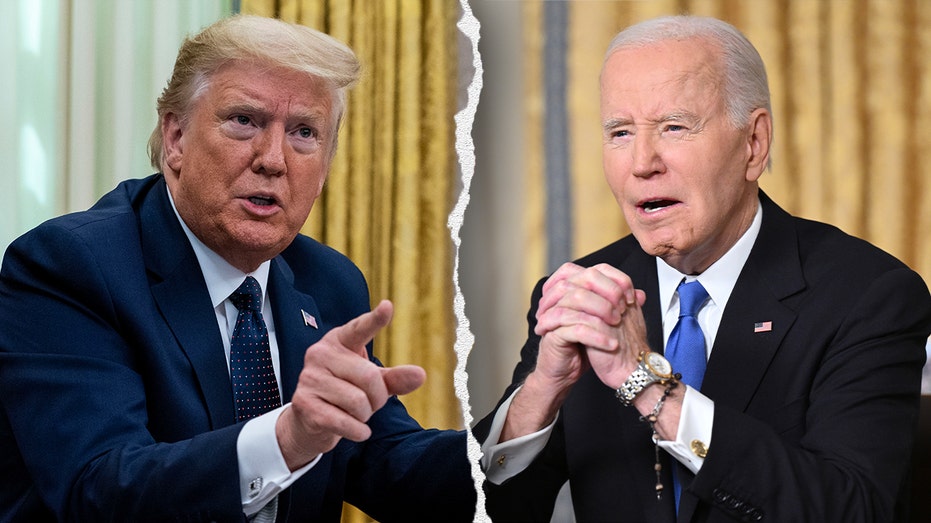Trump Visa Policy 'Far More Restrained' Than Biden's Israeli Visa Restrictions: Expert

Sarah Johnson
March 16, 2025
Brief
A legal expert compares Trump and Biden visa policies, highlighting restrained measures against pro-Hamas students versus broader Biden-era restrictions on Israelis, sparking debate on political bias and free speech.
A legal expert has drawn sharp contrasts between visa policies enacted by the Trump and Biden administrations, claiming that Trump’s measures to revoke visas and green cards of pro-Hamas students in the U.S. are "far more restrained" than a Biden-era policy targeting Israelis. This comparison has sparked heated debate, with accusations of political bias and overreach on both sides.
Eugene Kontorovich, a senior fellow at the Heritage Foundation’s Margaret Thatcher Center for Freedom, told Fox News Digital that Trump’s current efforts to address pro-Hamas activists on U.S. campuses are legally sound and restrained compared to a visa policy introduced by President Biden in late 2023. He described the Biden administration’s actions as a politically charged attempt to "punish political enemies."
Trump’s administration is currently working to revoke visas and green cards of students who participated in anti-Israel protests on U.S. college campuses. These efforts have faced backlash from Democrats, who argue that the move undermines First Amendment rights. However, Kontorovich emphasized that Trump’s policy narrowly targets individuals with suspected ties to Hamas, a designated foreign terrorist organization, rather than political dissenters in general.
By contrast, the Biden administration introduced a visa restriction policy in December 2023 targeting individuals believed to have "undermined peace and stability" in the West Bank. This followed the outbreak of war in Israel in October 2023. The Biden policy, framed as part of efforts to achieve a two-state solution for peace in Israel and Palestine, included restrictions not only on the individuals directly involved but also on their immediate family members.
Kontorovich criticized the vague language of the Biden policy, arguing that it allowed the administration to penalize individuals who merely disagreed with its stance on the two-state solution. "There is nothing in U.S. law that says the two-state solution is the ultimate goal," Kontorovich said. "Hamas is a designated foreign terrorist organization. Opposing the two-state solution is not."
In February 2024, Biden signed an executive order imposing sanctions on individuals "undermining peace, security, and stability in the West Bank." The order included measures such as freezing bank accounts, canceling credit cards, and restricting basic life activities for sanctioned individuals. Kontorovich likened the policy to a "Jew ban," referencing Trump’s controversial travel bans during his first term, as it disproportionately affected Israeli Jews based on their political beliefs.
The expert also pointed out a lack of public outcry from Democrats and activist groups at the time the Biden policy was enacted. He noted that this silence contrasted sharply with their vocal opposition to Trump’s current policy targeting pro-Hamas activists, which he characterized as less politically motivated.
The case of Mahmoud Khalil, a Columbia University graduate and prominent pro-Hamas protest leader, has become a focal point in the debate. Khalil, a Syrian-born green card holder, was arrested in March 2025 for allegedly leading activities aligned with Hamas. His arrest has drawn criticism from liberal lawmakers and activists, who claim it is an attack on free speech. However, the Department of Homeland Security has defended the move, stating that Khalil’s activities pose a national security risk.
Trump, in a January 2025 executive order, declared his administration’s intention to deport pro-Hamas protesters in the U.S. on student visas. "To all the resident aliens who joined in the pro-jihadist protests, we put you on notice: come 2025, we will find you, and we will deport you," he said in a statement.
Kontorovich argued that Trump’s approach is legally grounded and focused on individuals with ties to Hamas, a designated terror group. He also suggested that the administration deliberately began with the most difficult deportation case—Khalil, a green card holder—to set a legal precedent.
The debate underscores a broader tension over how visa policies are used to address political activism, national security, and free speech. While both administrations have exercised broad presidential powers in this area, the contrasting reactions reveal deep partisan divides. Kontorovich concluded, "What Trump is doing is far more restrained than politicized visa policies of prior administrations. The outrage is manufactured, and the double standard is glaring."
Topics
Editor's Comments
The hypocrisy here is almost comical. If Biden's sweeping visa restrictions flew under the radar, it’s likely because they were cloaked in the noble goal of 'peace in the Middle East.' But once Trump takes action—albeit targeted and legally sound—it’s suddenly an authoritarian crisis? The selective outrage is exhausting. And let’s not even start on the irony of Khalil’s defenders claiming 'free speech' while he allegedly supported a group that doesn’t exactly specialize in democratic values.
Like this article? Share it with your friends!
If you find this article interesting, feel free to share it with your friends!
Thank you for your support! Sharing is the greatest encouragement for us.



